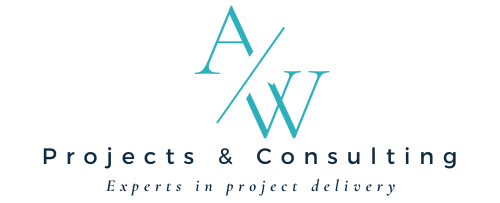Preparing for Tenders: ISO Standards and Certifications for Government Projects in Australia
Securing government contracts is a significant opportunity for businesses in Australia, offering both prestige and the potential for substantial revenue. However, winning tenders and successfully executing government projects requires more than just a competitive bid; it demands adherence to specific standards and certifications that demonstrate your capability, reliability, and commitment to quality. In this blog, we’ll explore how to prepare for tenders and detail the ISO standards and certifications typically required for working on government projects in Australia.
1. Understanding Tender Requirements
Why It Matters: Properly understanding the tender requirements is crucial for crafting a proposal that meets the client’s expectations and complies with all necessary criteria.
How to Do It:
- Review Tender Documents Thoroughly: Examine all aspects of the tender documents, including project scope, deliverables, evaluation criteria, and submission guidelines.
- Clarify Requirements: If any part of the tender is unclear, seek clarification from the issuing authority before preparing your proposal.
- Assess Compliance Needs: Identify any specific ISO standards or certifications mentioned in the tender that are required for submission.
2. Key ISO Standards and Certifications
Government tenders in Australia often require businesses to hold certain ISO standards and certifications. Here’s a look at some of the most common ones:
ISO 9001: Quality Management Systems
Overview: ISO 9001 sets out the criteria for a quality management system (QMS). It focuses on ensuring that organizations meet customer requirements and enhance customer satisfaction.
Relevance: Government agencies often require ISO 9001 certification to ensure that suppliers have robust quality management practices. This certification helps demonstrate your commitment to delivering consistent and high-quality results.
ISO 14001: Environmental Management Systems
Overview: ISO 14001 provides guidelines for an environmental management system (EMS). It helps organizations improve environmental performance and comply with environmental regulations.
Relevance: For projects with environmental considerations, such as construction or infrastructure, ISO 14001 certification shows your commitment to environmental stewardship and can be a requirement for securing government contracts.
ISO 45001: Occupational Health and Safety Management Systems
Overview: ISO 45001 is an international standard for occupational health and safety (OHS) management systems. It aims to reduce workplace risks and improve employee safety.
Relevance: Government contracts often require ISO 45001 certification to ensure that suppliers adhere to high safety standards. This certification is particularly important for industries with significant safety risks.
ISO/IEC 27001: Information Security Management Systems
Overview: ISO/IEC 27001 provides a framework for managing sensitive company information to keep it secure. It addresses information security risks and safeguards against data breaches.
Relevance: For tenders involving sensitive or confidential information, ISO/IEC 27001 certification is crucial. It demonstrates that your organization has robust information security measures in place.
ISO 50001: Energy Management Systems
Overview: ISO 50001 helps organizations manage and improve energy performance. It focuses on energy efficiency, reduction of energy consumption, and sustainability.
Relevance: For projects with a focus on energy efficiency and sustainability, ISO 50001 certification can be an advantage, showing your commitment to managing and reducing energy usage.
AS/NZS 4801: Occupational Health and Safety Management Systems
Overview: AS/NZS 4801 is similar to ISO 45001 and is an Australian/New Zealand standard for occupational health and safety management systems.
Relevance: This standard is widely accepted in Australia and can be used as an alternative to ISO 45001. It demonstrates a commitment to maintaining high health and safety standards.
ISO 31000: Risk Management
Overview: ISO 31000 provides guidelines for risk management. It helps organizations identify, assess, and manage risks systematically.
Relevance: While not always mandatory, ISO 31000 certification can be beneficial for tenders where effective risk management is a critical component. It shows that you are proactive in identifying and addressing potential risks.
3. Preparing Your Tender Proposal
Why It Matters: A well-prepared tender proposal can significantly impact your chances of winning the contract. It should effectively communicate how your business meets the tender requirements and stands out from the competition.
How to Do It:
- Align with Tender Requirements: Ensure that your proposal addresses all aspects of the tender document and aligns with the specific ISO standards and certifications required.
- Highlight Relevant Certifications: Clearly mention your ISO certifications and explain how they are relevant to the project.
- Showcase Experience and Capability: Include case studies, previous project successes, and evidence of your ability to deliver high-quality outcomes.
4. Maintaining Certification and Compliance
Why It Matters: Keeping your certifications current and maintaining compliance with ISO standards is essential for continued eligibility for government tenders.
How to Do It:
- Regular Audits and Reviews: Schedule regular audits to ensure that your systems and processes comply with the standards.
- Update Certifications: Renew certifications before they expire and stay informed about any changes to the standards.
- Continuous Improvement: Implement continuous improvement practices to enhance your quality management, environmental management, and safety systems.
5. Building Relationships and Networking
Why It Matters: Building strong relationships with government agencies and networking within industry circles can provide valuable insights and increase your chances of securing tenders.
How to Do It:
- Attend Industry Events: Participate in conferences, workshops, and networking events to connect with government representatives and industry peers.
- Engage with Tender Issuers: Whenever possible, engage with the issuing authority to understand their priorities and build rapport.
- Seek Feedback: After tender evaluations, seek feedback on your proposals to identify areas for improvement and refine your approach for future submissions.
Conclusion
Preparing for tenders and working on government projects in Australia involves a thorough understanding of tender requirements, obtaining and maintaining relevant ISO standards and certifications, and crafting compelling proposals. By aligning with key ISO standards such as ISO 9001, ISO 14001, ISO 45001, and others, your business can demonstrate its capability, commitment to quality, and compliance with industry standards.
With careful preparation, attention to detail, and ongoing engagement, you can enhance your chances of winning tenders and successfully executing government projects. Embrace these practices to position your business as a strong contender in the competitive landscape of government contracting.







